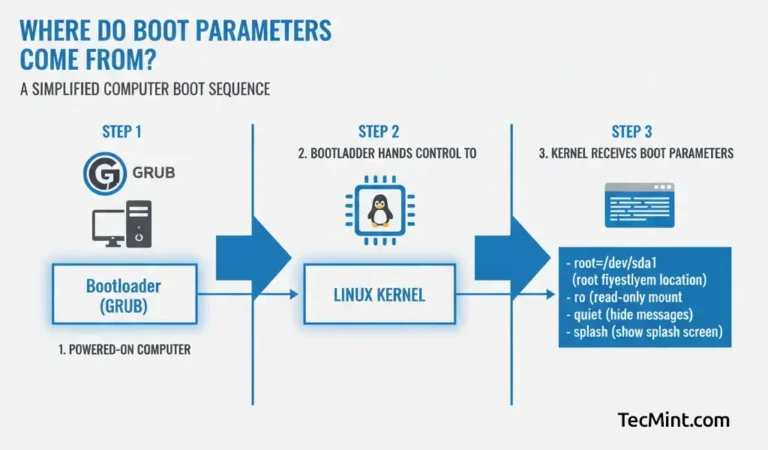In the server development process, companies that previously used virtual hosting and virtual private servers (VPS) almost inevitably switch to dedicated ones. This article explains what dedicated servers are, the options included, who they are suitable for, and their outstanding features.
Table of Contents:
What Is a Dedicated Server?
A dedicated server is a type of server to which a single client has exclusive access.
There are no restrictions on the use of such a server. You can install any software needed for your project, including several operating systems.
Renting a dedicated server is an advanced option compared to renting a VPS. They have advanced technical characteristics and are ideal for large projects requiring high speed, stability, and security.
Types of Dedicated Servers
- Entry-level dedicated servers
- Business-level dedicated servers
- Enterprise-level dedicated servers
Entry-Level Dedicated Servers
Entry-level dedicated servers typically use a smaller CPU, such as an Intel Xeon 1230v6. It is an ideal option for high-traffic sites, multiple websites, and resellers. Entry-level dedicated servers provide plenty of resources for maintaining several websites and small applications simultaneously.
Business-Level Dedicated Servers
Business-level dedicated servers run a more sophisticated single CPU, like the Intel Xeon Gold 6226R. This option is designed for databases, small Software-as-a-Service (SaaS) projects, and large resellers. Business-level dedicated servers are good for running multiple applications and a large number of websites.
Enterprise-Level Dedicated Servers
Enterprise-level dedicated servers usually run a dual-processor setup. These are the most sophisticated setups for hosting complex, multi-user applications, large databases, extensive SaaS projects, or virtualized environments. Additional use cases for these types of servers would be gaming-administered servers and websites and applications with rotating data.
Management Levels for Dedicated Servers
Management levels differ depending on whether users connect via secure shell (SSH) protocol or use the provider’s technical support for a fee.
What Are Managed Dedicated Servers?
Servers require maintenance, and data centers have a team of professionals who solve issues for a fee rather than leaving them to the tenant. This type of dedicated server is called a Managed Dedicated Server.
What Are Self-Managed Dedicated Servers?
If the server tenant wants to maintain the server, they are given full access to the equipment. These servers are advantageous to those who wish to save money or have a unique system that requires special maintenance.

How Do You Pick the Best Dedicated Server?
To choose the best server for your needs, you need to understand the technical characteristics your project requires. For example, the kind of processor needed, RAM, and disk space. Because servers are connected via the Internet, it is also vital to consider the available bandwidth. For many projects, this is as important as the technical aspect.
Processor
The processor is your server’s brain. It determines the operational speed. The two main parameters you should focus on are frequency and number of cores. The processor frequency affects overall performance, such as page rendering speed, and the number of cores affects scalability. The more cores the processor has, the more traffic the site will be able to handle.
There are many processor models, but particular server processors are built exclusively for the tasks the server performs.
A server must have the frequency and number of cores necessary to cope with the operations per second with which it will be tasked. This is essential to the smooth operation of applications, the speed of process execution, and the request response time.
Random Access Memory (RAM)
At the most fundamental level, RAM is the server’s short-term memory. It serves as temporary storage for data, which allows for faster processing. RAM has frequency and generation characteristics, but the most critical parameter is the number of gigabytes (GB).
When it comes to RAM, more is better. Each running program consumes RAM, and having an insufficient amount causes problems from slow operation execution to complete failure. For example, even with the fastest processor, not enough RAM means fewer visitors can access your site simultaneously.
Disk Space
A server runs multiple processes simultaneously: installing new programs, generating data, creating backups, and recording logs.
The amount of disk space a server has dictates both the volume of work it can do and the speed at which the server can operate, such as the rate at which the server can read and write. Despite having an adequate processor, a server needs sufficient disk space to work quickly.
It is also essential to distinguish between various types:
- SATA/SAS drives are bulky and relatively slow. They are suitable for storing files that are not frequently accessed. They’re a great option to use for backups.
- SSD disks are fast and increase a server’s operational speed. These are suitable for hosting databases because they provide immediate, timely access.
Internet Connection
Servers perform tasks and send the results through the Internet. These range from simple responses to complex algorithms. When choosing a server, you need to ensure:
- The server has an adequate information transfer rate for your needs. This generally needs to be above 100 MBps.
- The server can handle the amount of information transferred within a specific time. Traffic is usually unlimited, but there are restrictions in some cases.
Server Location
When creating your project, it is essential to understand who your audience is and look for an appropriate server located in their territory. It’s no secret that a closer server will transmit data faster simply because of its proximity to the user.
Let’s say you’re an online gaming company in South America. Even with the fastest Internet possible, the game will not run as smoothly for players from remote regions as it will for local players.
Therefore, it’s critical to make sure that the hosting company has servers in the regions that are important to you. If you want to create an online store with instant page loading, your server must be in the region you are targeting.
Server Conditions
Once you are satisfied with the technical specifications, Internet connection, and location, it is vital to check whether the necessary emergency measures are available.
It’s essential that the data center housing your server has a continuous power supply, an emergency power supply, and an uninterruptible power supply. You also need a permanent connection to communication channels and to be able to replace equipment if it fails.
Security is also critical. You need protection against DDOS attacks and bots, among other threats. Levels of security range from L1 to L7. If you have a vital project like a government contract, for example, you must consider whether the data center provides a satisfactory level of protection.
Finally, how well-equipped is the data center? Is there sufficient server ventilation and cooling, and are there countermeasures for unforeseen circumstances? In March 2021, a data center in Strasbourg, France burned down because it lacked an automatic fire extinguisher system – a disaster that could have been entirely avoidable.
Capabilities
Some use a dedicated server to build smartphone apps, others use servers to host websites. Before picking your server, consider how it will be used and find a solution that matches your unique needs. For example, if you run a high-traffic WordPress site, you would want to choose a WordPress dedicated server instead of a dedicated SaaS server.
Advantages and Disadvantages of Dedicated Servers
Each system has its strengths and weaknesses, depending on your needs.
Advantages of Dedicated Servers:
- Better security. The server belongs entirely to you. No one will be able to disrupt its operation or upload viruses.
- Increased performance. Placing a database on dedicated hardware reduces the computational load on the database servers.
- Flexible hardware configuration. Dedicated servers mean your configurations are quite flexible. For example, you can configure your server with a specific processor, depending on your performance needs and the offerings of your hosting provider. Also, if you have large databases, you can add additional disk space.
- Flexible software configuration. Because the server will be dedicated only to your organization, you can install any software you like.
- Reliable resources. Utilizing dedicated servers gives you the ability to withstand multiple simultaneous requests, allows you to launch large projects, and eliminates the risks of system malfunctions, such as crashes at peak times or delayed responses.
Disadvantages of Dedicated Servers
- Increased cost. Some of the advantages of dedicated servers cost money. The cost factor is a serious consideration. For entry-level projects, there are other options, such as a VPS.
- Additional administration. A dedicated server requires qualified support. It is advantageous to have a provider you can contact for assistance. If additional support is not an option, you will need to hire an administrator, adding more costs to your hosting.
- Potential downtime. Upgrading your hardware has the potential for downtime since most hardware upgrades require the server to be offline. Advanced planning is necessary for all hardware upgrades.
Dedicated Server Purposes
There are several different types of dedicated servers that can be used by businesses of all sizes. It depends on the goals and objectives the company has set.
It’s one thing if you have a small website or an online store that only needs virtual hosting. It is different if you have applications running, calculations taking place, or a customer service system that must remain stable while computing many simultaneous transactions.
Also, a dedicated server is the only option for large portals, stores, multi-user sites, and other projects requiring large capacities.
Need Help Picking the Right Dedicated Server?
With so many different types of dedicated servers out there, it can take time to know which one is right for your needs. But by understanding the different purposes of each type of server, you can narrow down your options and pick the best one for your business. If you still need to decide which server is right for you.
Liquid Web has been providing dedicated server hosting for 25 years, earning customers’ trust worldwide. The company’s vast configuration of servers in every region of the world allows you to realize incredible connection speed and achieve your goals.
For more information, contact us today and speak with one of the Most Helpful Humans In Hosting®





